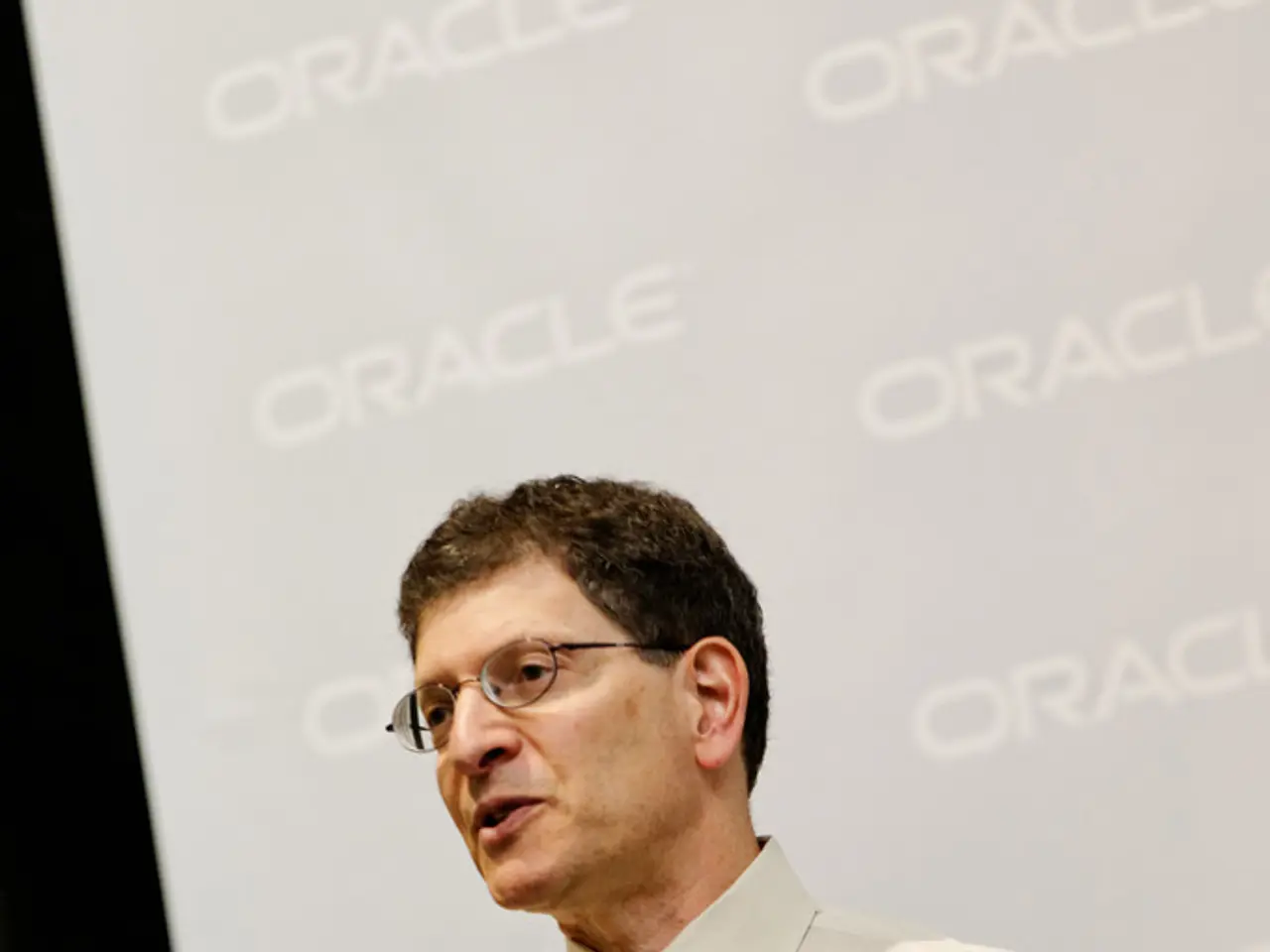Ready for a fresh start? Olgerd Eichler of MainFirst believes the upcoming elections could be the catalyst for an economic revolution in Germany
Frankfurt
"Affordable share prices present intriguing opportunities for potential investment gains"
Germany's flagging economy may need a breath of fresh air, says Olgerd Eichler, fund manager at MainFirst. With the federal election fast approaching, there's potential for an "Agenda 2030" to shake things up, offering a golden opportunity for German stocks, particularly small and medium-sized companies.
Germany has faced economic challenges before, such as at the turn of the millennium, specifically in 2002 and 2003. At that time, the government, led by Chancellor Gerhard Schröder, embarked on a radical reform with the Agenda 2010. While it cost Schröder his chancellorship, the German economy rebounded significantly, unemployment dropped, and the German stock market soared. For example, the DAX outperformed the US stock index S&P 500 from 2003 to 2008 (see chart).
Currently, Germany is grappling with numerous obstacles. "Although the economy has recovered from the COVID-19 pandemic, the energy crisis and the war in Ukraine have exposed weaknesses," says Eichler. Economic growth has slowed, industrial production is declining in key sectors such as automotive and chemical industries, and dependence on fossil fuels is hindering competitiveness.
Simultaneously, the digital transformation is presenting the economy with structural adjustment issues, according to Eichler. "Germany, once a trailblazer in engineering, is lagging behind in key technologies like artificial intelligence." Added to this are current geopolitical tensions that need to be addressed strategically: the competition between the USA and China, the war in Ukraine, and the global realignment of trade relationships.
The challenges are also daunting at home. "Rising inflation, social inequality, migration, political blunders, and the climate crisis are dividing society," says Eichler. "Many citizens are frustrated with the political impasse and are calling for bold reforms."
An opportunity to reorient the nation
Eichler considers the Agenda 2010 a significant reform. "While the approach was controversial, it laid the foundation for the later economic upturn that helped Germany regain strength and competitiveness," Eichler asserts. Measures at the time included the relaxation of dismissal protection, the introduction of Hartz IV laws, and the deregulation of the labor market.
Today, Germany finds itself in a state of uncertainty and confusion, much like it was then, calling for decisive political action. "But the current problems are more complex, rooted in Germany's global interdependencies," believes Eichler.
The upcoming elections offer the chance to reorient the country and tackle the backlog of reforms. A new government could drive forward the necessary changes in the areas of digitization, bureaucracy, and energy. Clear goals, bold decisions, and targeted economic policies are required to achieve this. Then Germany can regain its position as Europe's economic powerhouse and strengthen its global presence - and once again become the laggard's role model for progress.
The German mid-market would benefit the most from new economic policy impulses, argues the stock market expert: "Not only could companies gain confidence, but also demonstrate greater investment readiness." Numerous small and medium-sized enterprises offer tremendous catch-up potential, as they have been overlooked by investors in the past. "The low valuations of these stocks speak for particularly compelling price prospects," says Eichler.
Eichler is right about that. After all, the German stock market remains low and much cheaper than the American one. This offers catch-up potential should the opportunity for different economic policies be seized. But, of course, the question remains as to whether an "Agenda 2030" will succeed after the federal elections.
Enrichment Data:- The success of an "Agenda 2030" would depend on factors such as political stability, economic policies, and market sentiment[1][3].- Small and medium-sized enterprises may be more vulnerable to domestic political and economic changes and could benefit from an agenda aimed at sustainable development and equitable society[2].- The new government could influence sectors like renewable energy, technology, and sustainable manufacturing positively while posing challenges to traditional industries[2][5].- Germany's economy is currently expected to stagnate due to US tariffs and other global factors. An "Agenda 2030" that promotes internal growth and development could help mitigate these effects[2][5].- Positive investor sentiment could boost small and medium-sized companies, while skepticism could lead to market volatility[4][5].- The recent failure of Friedrich Merz to secure a majority in the Bundestag underscores the political instability in Germany[1].
- Olgerd Eichler, fund manager at MainFirst, posits that the upcoming elections in Germany could trigger an "Agenda 2030," which might catalyze a significant economic revolution, particularly for small and medium-sized companies.
- During the economic challenges of 2002 and 2003, led by Chancellor Gerhard Schröder, Germany implemented the Agenda 2010 reform, with controversial measures such as the relaxation of dismissal protection and deregulation of the labor market, ultimately leading to a substantial economic rebound.
- As the elections approach, concerns about the German economy's current obstacles, including slow economic growth, declining industrial production, and dependence on fossil fuels, are being raised by experts like Eichler.
- In addition to geopolitical tensions and structural adjustments due to the digital transformation, domestic issues such as rising inflation, social inequality, migration, political blunders, and the climate crisis require urgent attention and reform.
- A new government, if elected, could leverage this opportunity to tackle the backlog of reforms, addressing areas like digitization, bureaucracy, and energy while potentially strengthening the competitiveness of German stocks, particularly small and medium-sized enterprises.




